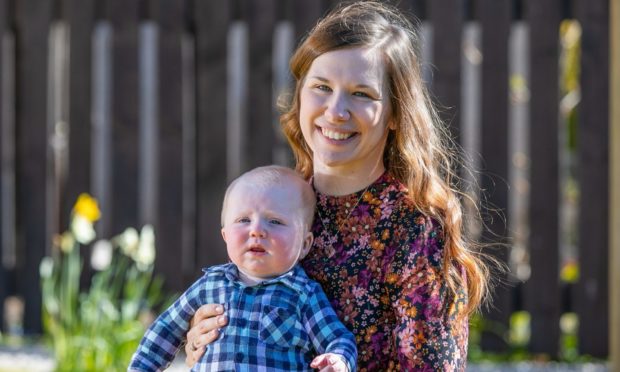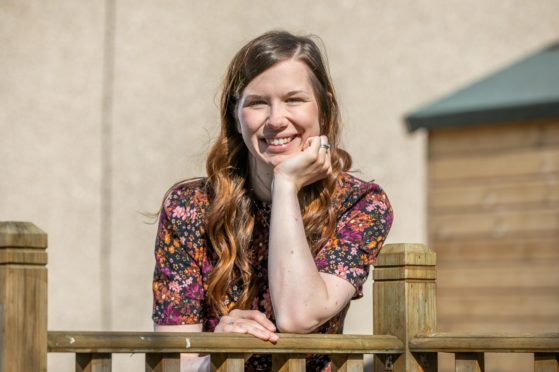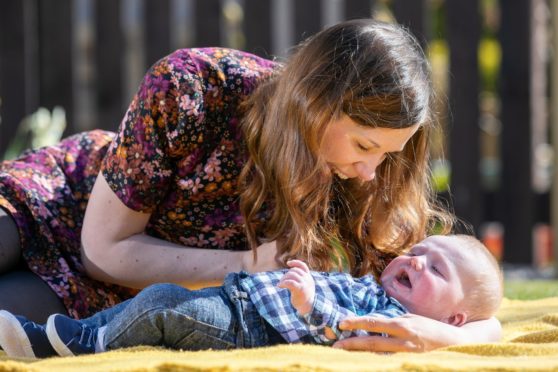When new mum Holly Pullar began having irrational thoughts that having her much longed for and loved baby boy was a mistake she knew the time had come to seek help.
When thinking rationally, she knew this wasn’t the case, but her feelings were difficult and confused.
Nurse Holly, 27, from Broughty Ferry was suffering from post-natal anxiety after her son Lewis was born in November.
Despite her career in healthcare, Holly hadn’t even heard of the condition and was only aware of the better-known post-natal depression.
‘I can’t cope anymore’
Now Holly has opened up about the traumatic time to raise awareness of the illness.
“I was saying things like ‘take Lewis away, I don’t want him anymore, I don’t want a baby, this was a mistake and I can’t cope with this anymore’,” she said.
“Although I was feeling this way I knew it wasn’t really the case.
“I was hysterically crying, rocking back and forth and was struggling to breathe.
“Everyone has heard about post natal depression but few people have heard about the anxiety condition – not even GPs or new mums themselves.
“I got amazing help from different people in the NHS and learned what was wrong.
“I now want to tell others about this and make them aware of this little known condition.”
Charity walk
In her bid to highlight the issue, Holly is to walk 50 miles over three days next weekend as part of the Kiltwalk to raise funds for Maternal Mental Health Scotland (MMHS).
Normally the Kiltwalk is a large-scale event but due to coronavirus restrictions, this year the participants will complete the challenge alone.
MMHS works to educate the public and the medical profession about postnatal mental health, improve NHS services and make sure the voices of new parents are heard.
Traumatic labour
Holly explained that she gave birth to Lewis last November, in a traumatic and difficult labour and birth, which is where she believes her anxiety began.
She said: “Everything was going well and I was in the birthing pool in Ninewells.
“Then the baby’s heart slowed down and everything suddenly changed – things weren’t going the way they were supposed to.”
She said that she was taken away initially for an emergency caesarean section, which was avoided however, when Lewis’s heart rate returned to a more normal level.
Holly was allowed home the next day and she and her husband Stephen settled into a routine with their new baby.
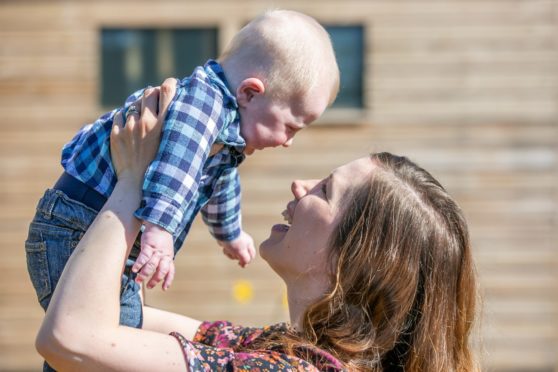
However Holly then began to suffer panic attacks, shortness of breath and became very disengaged from her baby.
She said: “I believe the trauma of a difficult labour and birth followed three weeks later by difficulties with feeding may have subconsciously started off my anxiety.
“Those two issues along with the fear of catching Covid-19, the current restrictions, the short winter days, the weather, along with being a first time parent were massive contributors to how I was feeling.”
Intervention
Eventually it became too much and Holly suffered a breakdown, leading to her parents and Stephen calling for help, thinking she might have to be admitted to hospital.
She said: “When I spoke to a mental health nurse on the phone, she asked me if I wanted to harm myself or my baby. I answered ‘no’ and this was the honest truth.
“She advised me that she would do an urgent referral to the distress brief intervention team and that someone from this service would call me.”
That call began the chain of events to Holly’s diagnosis and lead her on her road to recovery.
She said: “I was put on medication and put in touch with the distress brief intervention team who provided me with counselling every second day for two weeks whilst my medication began to take effect.
“I was also assigned a peri-natal mental health midwife who continues to offer me invaluable advice and support.
“She has been in touch with me on a number of occasions to offer advice and support and has since come to see me to do a debrief of my labour.
“I had many unanswered questions around my labour and birth and felt that I couldn’t put it to bed until I had answers. I now do.
“I also have regular therapy sessions with a trained counsellor and this helps me massively too.”
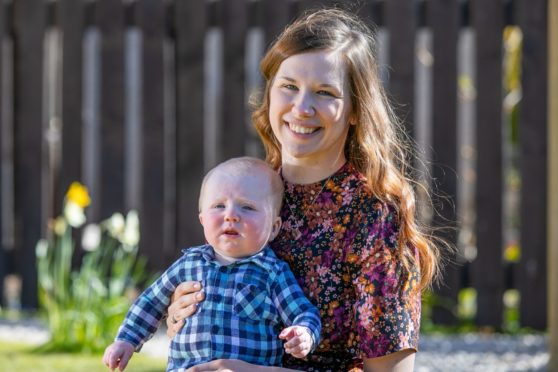
Holly also wanted to thank all the NHS staff who have supported her.
“We are so incredibly lucky to have the NHS and MMHS play a vital role in ensuring help can be provided and continue to be improved,” she said.
“I have no idea how long I will be on medication for but that doesn’t matter to me.
“Medication to help with your mental health is just as important as medication to help a physical ailment and it should absolutely not be stigmatised.
“I still have down days but a lot more up days.
“If my story helps even just one person then I will be happy. If anyone who reads this is having similar symptoms or thoughts – you are not alone. The most important thing to do is to speak to someone, there is help out there.”
Donations to Holly’s Kiltwalk can be made here.
